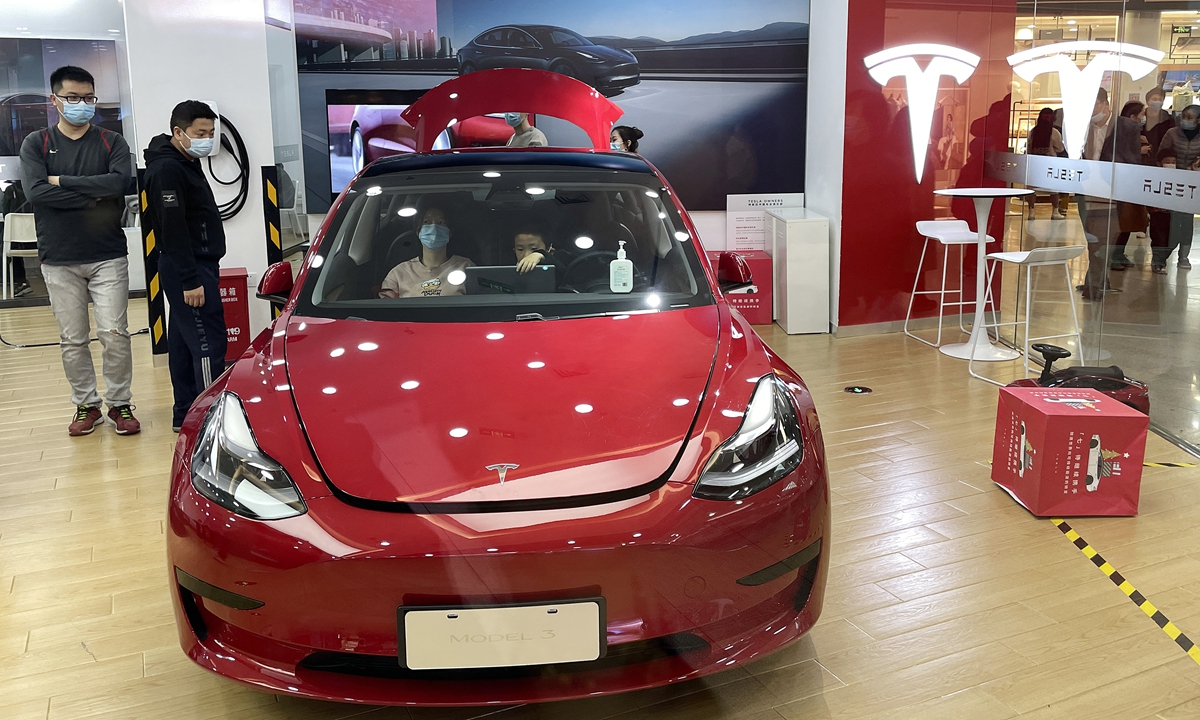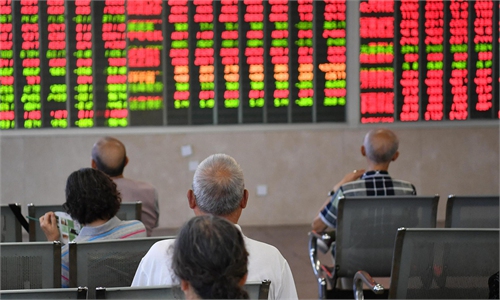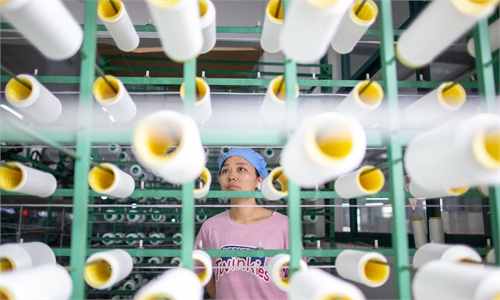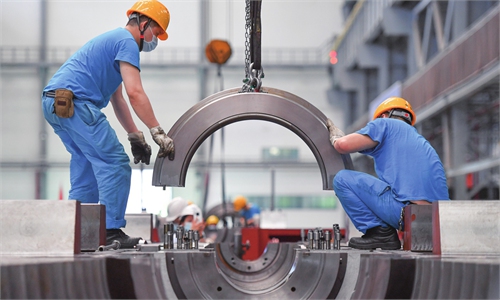
People sit inside a Tesla car displayed at a store in Beijing. File Photos: VCG
China may announce a cut to the required reserve ratio (RRR), the amount of cash that banks and financial institutions must hold as reserves, by 0.5 percentage points as soon as Friday in a bid to boost economic growth amid growing headwinds, experts have claimed.
The comment came after Chinese Premier Li Keqiang said at a State Council Executive Meeting on Wednesday that China will tap monetary policy tools such as lowering RRR for banks at an appropriate time to provide more financial support to small and micro companies hit hard by COVID-19.
Experts predict that the RRR cuts could be launched as soon as this week to pump up cash for markets which are currently troubled by growing challenges including the ongoing battle against coronavirus.
"The central bank might announce to cut RRR by 0.5 percentage points within a week, possibly this Friday," Cao Heping, an economist from Peking University, told the Global Times on Thursday.
The RRR cut should have been adopted in the first quarter, against the backdrop of increasing anti-globalization and unilateralism in the West, the prolonged pandemic, and Russia-Ukraine conflicts forcing downward pressure on the Chinese economy, Cao said, noting that China faces strong headwinds to achieve its economic growth target of 5.5 percent for this year.
Veteran financial expert Zhao Qingming made a similar forecast, noting that the move will release 1.2 trillion yuan ($188 billion) of capital.
China is reaching to use policy tools to vitalize the market with an unexpected outbreak of Omicron cases throwing a number of domestic cities into short-term economic uncertainty, including the country's financial hub and a heavy manufacturing base city Jilin.
Cao said that the central bank needs to cut RRR by 0.5 percentage points by two or three times in a row to effectively boost economic conditions.
According to the State Council's meeting, China will also encourage major banks with adequate provision to gradually lower provision coverage for supporting small and micro companies hit hard by COVID-19. Other announced measures include boosting consumption and further expanding support for exports rebates to help stabilize foreign trade.
The meeting also called for expanding key consumption sectors such as health care, the auto sector and household appliances. Localities should not impose new curbs on car purchases and those already implementing curbs should gradually increase purchase quotas.
To stabilize foreign trade, the meeting urged regulators to expedite the paperwork to access export rebates from seven to six working days within the year. Exports rebates can now be used to refund value-added tax to eligible businesses.
China's foreign trade totaled 9.42 trillion yuan ($1.48 trillion) in the first quarter of 2022, up 10.7 percent year-on-year, maintaining a growth momentum for seven quarters. However, the country has also seen mounting challenges ranging from external risks to domestic outbreaks of the Omicron variant.
Auto sales also fell from 2021 levels with 4.915 million units sold in Q1, a decline of 230,000 units year-on-year, according to the China Passenger Car Association on Monday.
Global Times



